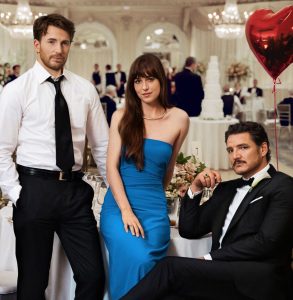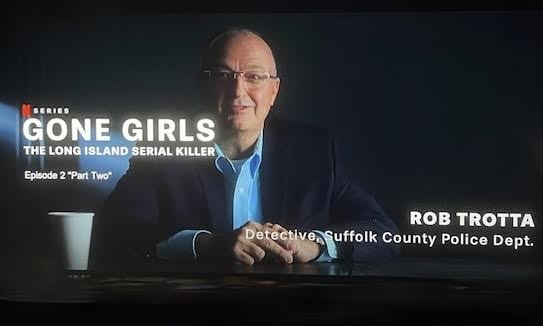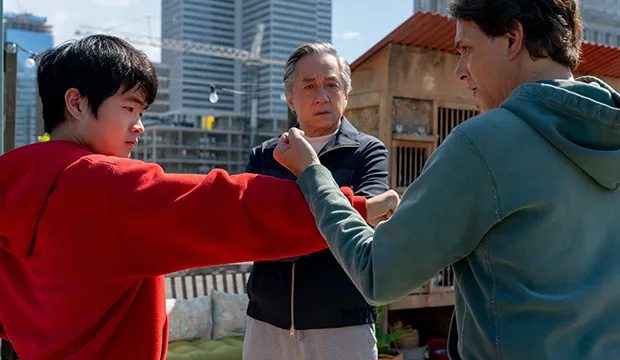Stony Brook University’s Staller Center for the Arts turns into a movie lover’s mecca when new independent films screen at the Stony Brook Film Festival on evenings from Thursday, July 17 to Saturday, July 26. The popular festival, now in its 30th year, will become a hub for some of the best filmmakers working today, a meeting ground for favorite actors and rising stars, and a showcase of new masterpieces as it pairs memorable short films with an array of features you won’t see anywhere else.
This year’s festival will showcase 36 films from 19 countries and kicks off with the East Coast Premiere of The Ties That Bind Us, a beautiful, surprisingly realistic film in which a set-in-her-ways 50-something single woman finds herself in a slowly shifting relationship with two children who live in her apartment building. This intimate, poignant, and ultimately joyous film wrestles with the question of what defines family.
The examination of the strength and limits of family continues through many of the films at this year’s festival, including the action-drama Way Home, that features a father struggling to bring his radicalized son back home from war-torn Syria; the challenging and inspiring drama Nawi, in which a young Kenyan teenage girl’s dreams of attending High School are jeopardized by her father’s plans to marry her off; the hilarious Mazel Tov, where a quick-talking, neurotic man who has been estranged from his siblings, returns to Argentina to mend his broken relationships — if he could only keep his big mouth shut; and a thought-provoking and gorgeous reverie from India called The Umesh Chronicles, that follows a woman from a privileged background considering the very different life of the servant-boy that grew up with her.
Finn Wittrock gives a finely layered portrayal of a filmmaker plagued by his past in the offbeat and witty Long Island-based feature Westhampton, a beautifully shot tale of forgiveness and acceptance by Long Island native Christian Nilsson.
Shot on location at his grandfather’s scenic ranch near the border of Mexico, JT Walker’s epic La Gloria stars David Morse as an aged rancher struggling to earn the trust of an immigrant woman he accidentally wounded.
Director Joel Alfonso Vargas has created a work of art that harkens back to the 70’s heyday of independent cinema with Mad Bills to Pay: (or Destiny, dile que no soy malo), a film that explores the struggles of a 19-year-old man-child navigating his new responsibilities after bringing his pregnant girlfriend to live with his family in the Bronx.
The pleasing aroma of new culinary discoveries permeates two of the festival’s independent features. In the beautiful period drama Mistura, a privileged French-Peruvian woman embarks on a daring culinary venture with the very people she had been raised to disregard. At the same time, in the uplifting documentary Ali Eats America, a teenage cancer patient plots a map with his mother of all the restaurants he wants to visit across the country.
Other can’t miss films include the wildly unique Animale featuring SBFF favorite Oulaya Amamra of Divertimento and Hard Shell, Soft Shell. In this western/horror/mystery from the South of France, a bull-racer notices disturbing changes occurring around her following an injury. Music fans will surely enjoy the surprisingly light-hearted biopic Midas Man about Beatles manager Brian Epstein.
And everyone should put closing night on their calendar, as the SBFF feature the American premiere from Spain with Gala Gracia’s first feature film, The Remnants of You. This masterfully subtle film follows a woman putting her career as a jazz pianist on hold following the sudden death of her father, which showcases an evocative solo piano score by Filipe Raposo.
The Festival is more than a cinematic event—it’s a cultural experience. Two feature films each evening,—each preceded by a short film—are shown on the Center’s 40-foot screen, often followed by intimate Q&As with the filmmakers, cast, and crew.
“We are very excited to have filmmakers from all over the world join us for their premiere screenings. Our audiences can gather in a huge theater with Long Island’s largest screen, to see movies the way they were meant to be seen,” says SBFF & Staller Center Director, Alan Inkles
The Stony Brook Film Festival is presented by Staller Center for the Arts at Stony Brook University with support from Suffolk County, Campolo, Middleton, & McCormick, LLP, Strata Alliance, News 12, and WLIW.
Film Festival line-up
OPENING NIGHT
Thursday, July 17 at 7 p.m.
Short: Hearts of Stone
Feature: The Ties that Bind Us
Friday, July 18 at 7 p.m.
Short: Resaca
Feature: Mistura
Friday, July 18 at 9:30 p.m.
Short: Quick Fix
Feature: Way Home
Saturday, July 19 at 7 p.m.
Short: A Guest in My Country
Feature: Westhampton
Saturday, July 19 at 9:30 p.m.
Short: We Do Our Best
Feature: Long Story Short
Sunday, July 20 at 7 p.m.
Short: Blackmoll
Feature: Never Alone
Sunday, July 20 at 9:30 p.m.
Short: We Buy Houses
Feature: La Gloria
Monday, July 21 at 7 p.m.
Short: Miracle
Feature: Nawi
Monday, July 21 at 9:30 p.m.
Short: The Traveler’s Prayer
Feature: Real Estate
Tuesday, July 22 at 7 p.m.
Short: My Name is Dania
Feature: Mazel Tov
Tuesday, July 22 at 9:30 p.m.
Short: Chatter
Feature: Midas Man
Wednesday, July 23 at 7 p.m.
Short: Ebb & Flow
Feature: Ali Eats America
Wednesday, July 23 at 9:30 p.m.
Short: Crab Claw
Feature: A World Apart
Thursday, July 24 at 7 p.m.
Short: 3 Minutos
Feature: The Umesh Chronicles
Thursday, July 24 at 9:30 p.m.
Short: Wait to Tell Mother
Feature: Animale
Friday, July 25 at 7 p.m.
Short: Baquine Friends Forever
Feature: Mad Bills to Pay
Friday, July 25 at 9:30 p.m.
Short: Sweet Cesspool
Feature: Uncle Vanya – Bubble Waltz
CLOSING NIGHT
Saturday, July 26 at 7 p.m.
Short: Place Under the Sun
Feature: The Remnants of You
CLOSING NIGHT AWARDS
9:30 p.m. Presented on stage.
Ticket information
All screenings are held at Stony Brook University’s Staller Center for the Arts, 100 Nicolls Road, Stony Brook in the 1,000-seat Main Stage theater.
Stony Brook Film Festival pass options include a VIP Gold Pass for $250 and a Regular Pass for $100, granting access to all ten days of the festival, and the Flex Pass for $75. Individual tickets — $15 adults, $13.50 seniors — are also available after July 1.
The Gold Pass includes VIP access to Opening and Closing Night parties, which include hors d’oeuvres, drinks, and a chance to mingle with filmmakers and festival goers alike. The Opening Night party will be hosted at Elaine’s Restaurant and Bar in East Setauket immediately following the Opening Night Feature film Q&A. This year’s Closing Night party will be at Curry Club at SaGhar in Port Jefferson Village.
This, along with guaranteed seating in a VIP reserved area of the theatre with filmmakers and actors, first admittance to the theatre for all screenings, and an exclusive festival gift, makes the Gold Pass (which is the price of one premiere screening at Sundance) a fantastic value and the best way to enjoy the entire festival experience!
The Flex Pass is perfect for someone with a jam-packed summer, the Flex Pass grants access to any five days of the festival (excluding Closing Night). It is the perfect opportunity for film fest discovery with the added benefit of flexibility at an affordable price.
All passholders receive guaranteed Priority Seating, Q&As with filmmakers, voting eligibility for the Audience Choice Awards, discounts at partner locations, and a festival gift. Each pass has added perks at different levels. Friends of Staller Members also get a reduced rate when using their Member discount at checkout.
—————————————————
Tickets may be purchased at stonybrookfilmfestival.com/pass. For more information, call the box office at 631-632-2787 or visit www.stonybrookfilmfestival.com.
This article originally appeared in TBR News Media’s Summer Times Supplement on June 19.

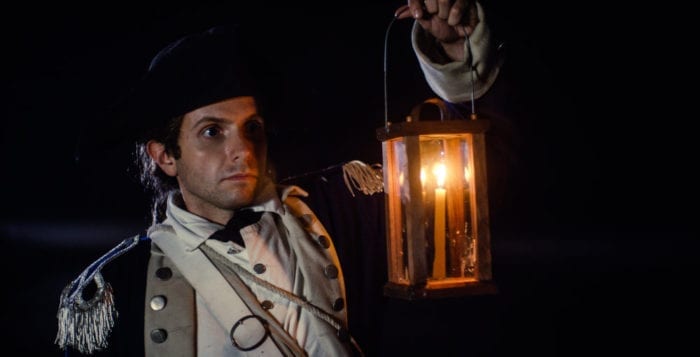




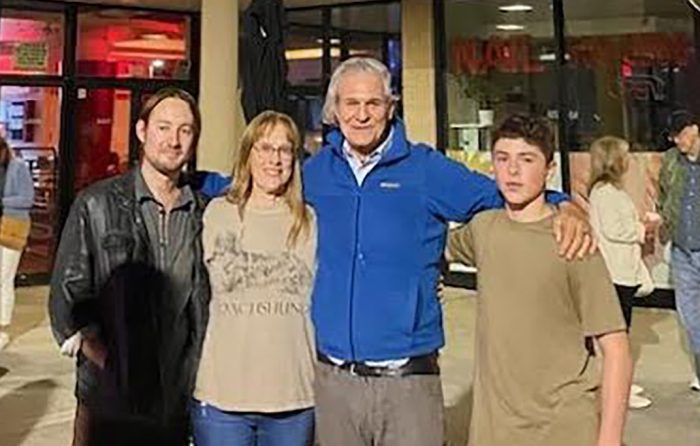
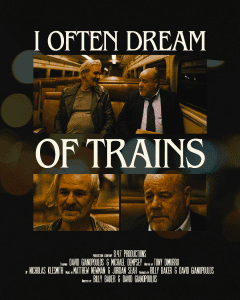 Written by Tony Dimurro and directed and produced by Billy Baker and Stony Brook native David Gianopoulos, the film is about two men on a train (Gianopoulos and Michael Dempsey) who cross paths as one is trying to find his way home.
Written by Tony Dimurro and directed and produced by Billy Baker and Stony Brook native David Gianopoulos, the film is about two men on a train (Gianopoulos and Michael Dempsey) who cross paths as one is trying to find his way home.
